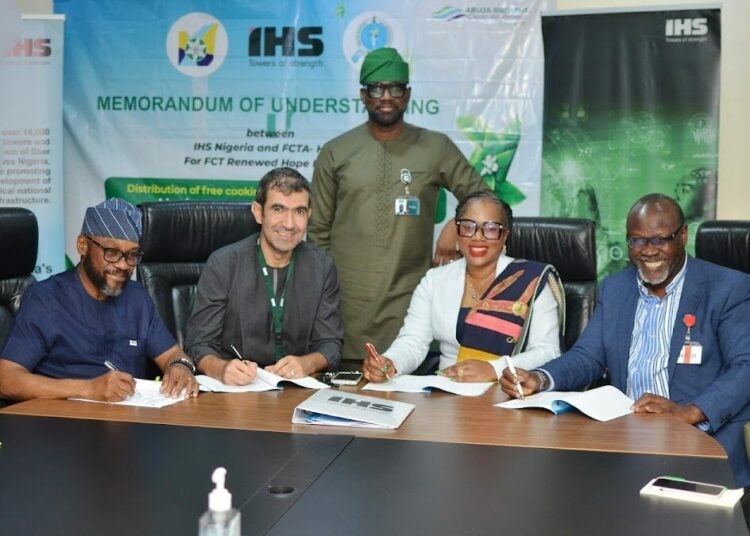iNigeria’s drive to tackle climate change and improve public health has gained momentum with a new partnership between IHS Nigeria and the Health Services and Environment Secretariat (HSES) of the Federal Capital Territory (FCT) to deliver clean energy solutions and community environmental projects in Abuja.
Although widely known for its dominance in the shared telecommunications infrastructure market, IHS is now positioning itself as a frontline actor in environmental health.
The company, which manages more than 16,000 sites nationwide, has pledged to extend its renewable energy investments to support healthier communities in the FCT.
The agreement, sealed at the company’s Lagos office, will see both organisations introduce projects that discourage fossil fuel use, promote clean cooking practices, and expand access to off-grid solar power.
These initiatives are expected to directly reduce air pollution and, in turn, cut the incidence of respiratory illnesses among residents.
Read Also: Lagos govt assures global investors of thriving business environment
Dr. Dolapo Fasawe, Mandate Secretary of HSES, described the partnership as a public health milestone.
“Through shared initiatives such as promoting clean cooking methods, deploying off‐grid solar solutions, and reducing air pollution, we hope the FCT becomes a model for other states,” she said.
For IHS, the move signals a broadening of its corporate social responsibility beyond infrastructure. CEO Mohamad Darwish stressed that the company’s climate-focused agenda is inseparable from human well-being.
“This partnership allows us to expand our sustainability agenda beyond telecom infrastructure into community health and climate resilience,” he noted.
Experts suggest that if successfully implemented, the collaboration could help Abuja set the pace for other Nigerian cities in linking clean energy adoption with disease prevention, while also advancing Nigeria’s climate commitments.
With project rollouts expected in coming months, attention will shift from boardroom promises to on-ground impact, whether households in the FCT can actually breathe cleaner air and live healthier lives as a result of this new public-private alliance.



